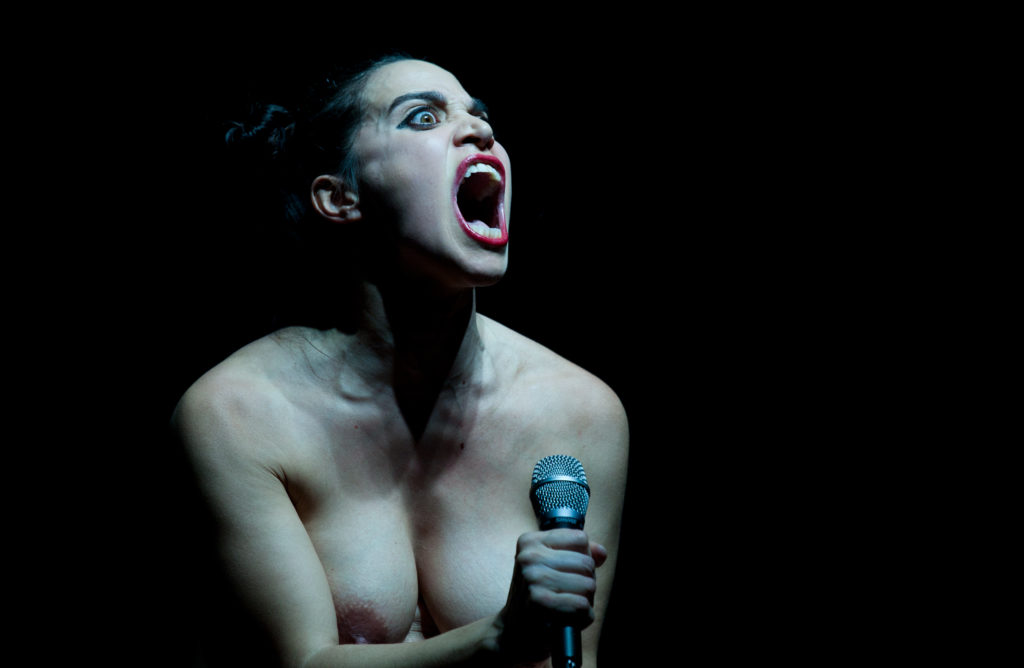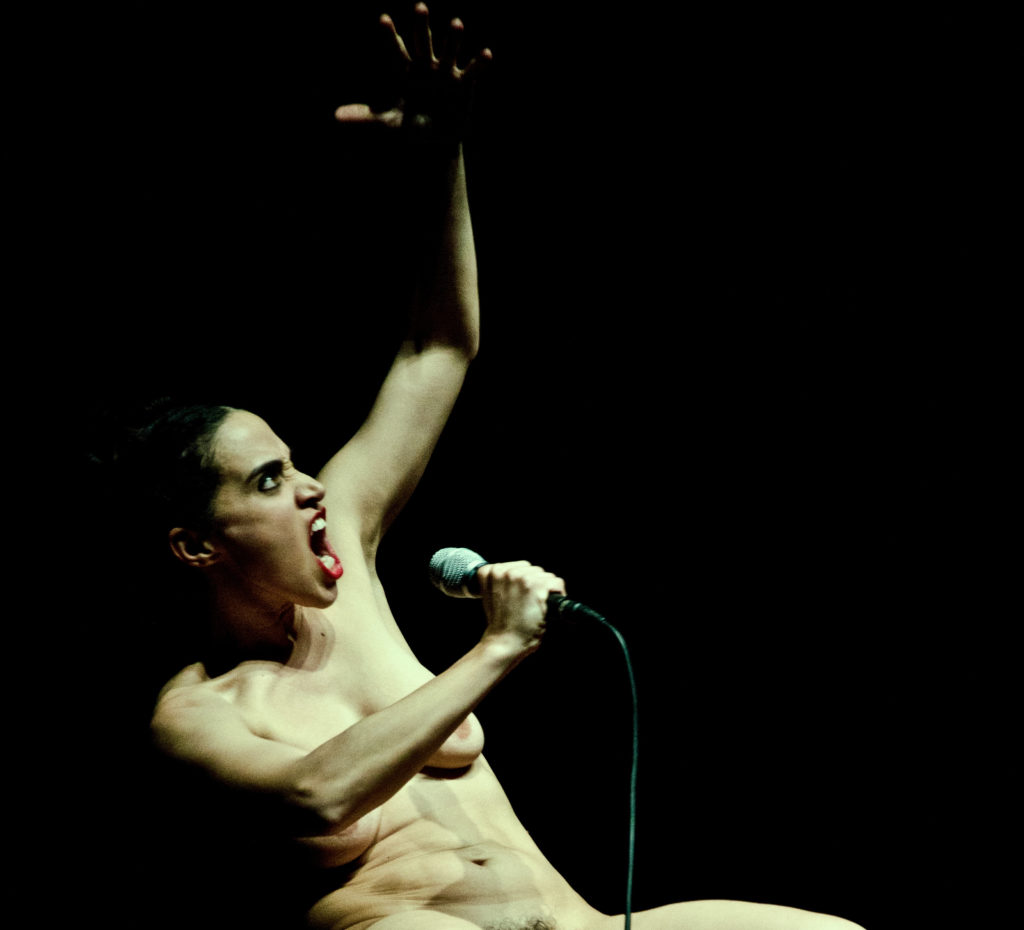
Credit: Valeria Tomasulo
At The Cultch to May 13, 2017
604-251-1363/thecultch.com
Posted May 3, 2017
Eat shit: explosive. Disgusting. Graphic. Verbal invective that is deeply insulting. La Merda translates from Italian, in which it was written, as The Shit. And while the play, written by Cristian Ceresoli, doesn’t end in an act of coprophagy, it does, nevertheless, conclude in metaphorical shit-consuming of all that is ugly and indecent in contemporary Italy: consumerism, corruption, sexism and self-loathing.
Performed worldwide by Silvia Gallerano, in Italian or English, since it was written in 2012, and produced by Frida Kahlo Productions and Richard Jordan Productions, Produzioni Fuorivia in association with Summerhall (Edinburgh) and Teatro Valle Occupato (Roma), La Merda is a brutal, searing, raging stream-of-consciousness that leaves you feeling skinned alive. Multi-international award winning, it appears at The Cultch as part of a world tour.
While the political references (including red shirts, Austro-Hungarian War, The Resistance and Pier Paolo Pasolini) probably don’t resonate strongly outside Italy, there are undeniable points of universal contact especially in the ravenous pursuit of fame.

Credit: Valeria Tomasulo
Written as a monologue in three movements, the first – The Cock – ends in feverishly-desired, imagined recognition: “. . . aren’t you the one who, yes, you know, the one who makes, the one who, yes, the one from, and I’ll say yes, of course it’s me, it’s really me, me, just me, me, me, meeeeeeee.”
I was actually surprised to read that Gallerano hadn’t written La Merda so profoundly does she inhabit the vulnerable, naked body of the performer, a young woman hoping to be cast in what turns out to be a commercial, not a film at all. Worse, the agency wants someone “short” and if not actually fat, then “ strongly plump good-looking.” Gallerano, seated on a high metal stool, is not at all fat; in fact, she’s tiny, slim and strong and, under a harsh spotlight, her skin appears alabaster, her wide mouth a red lip-sticked gash, her eyes dark-rimmed and her hair yanked up into two top-knots. But the character, obsessed with poor body image, constantly refers to her thighs, her “chubby tuna-legs”, her “mermaid-legs”. It is as if stardom and freedom are denied her because of her thighs. But she will, in the words of her father, “go for it” and she will do everything necessary to become a star: hand-jobs, blowjobs – whatever and with whomever it takes to get ahead. She is both manipulator and manipulated. And yet, after she has masturbated an outcast, spastic classmate, she feels hurt that he doesn’t even say goodbye.
So in need of approval, the character is naked in every sense. It’s brutal but absolutely riveting to watch. Gallerano is animated: shifting from a hunched, protective position and soft voice to full on, physically and verbally explosive rage. She switches voices – sometimes in the voice of “Daddy”, dead by suicide when the character was thirteen. And sometimes she virtually screams into the hand-held microphone.

Credit: Guido Harari
Through the character of the young woman, the playwright vents his anger at the passivity with which his compatriots accept political corruption, mourns his country’s fall from former glory and encourages Italians, once again, to rally. The curtain falls on the words of the Il Canto degli Italiani, the Italian national anthem that, translated, goes like this:
Let us join in a cohort,
We are ready to die.
We are ready to die,
Italy has called.
Let us join in a cohort,
We are ready to die.
We are ready to die,
Italy has called! Yes!
Pinned to your seat, you may not ‘like’ La Merda, but it’s unlikely you will ever get it out of your head. Yes!

